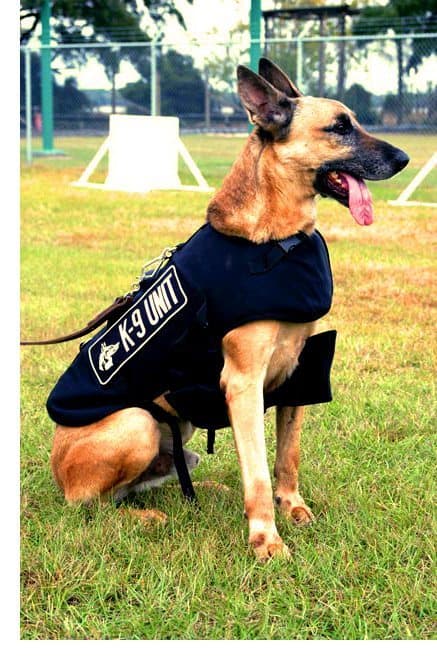 By BETH DeFALCO for Associated Press
By BETH DeFALCO for Associated Press
BORDENTOWN, N.J. — As Congress considers whether to allow state prisons to install cell phone jamming devices, New Jersey is grappling with ways to stop inmates from running criminal enterprises from behind bars.
On Tuesday, state Attorney General Anne Milgram announced charges against 35 inmates indicted for cell phone possession, a crime that carries a maximum sentence of five years in prison and a $15,000 fine.
The problem is so bad, in once instance law enforcement officers were able to intercept a conference call among gang members.
“Two inmates in different prisons and a third inmate in a county jail were plotting retaliation against another gang member,” Milgram said. “This is not what should be happening when we put criminal behind bars.”
Of the 35 inmates indicted on Friday, 25 are reputed gang members, she said.
Under current law, the FCC can only allow federal agencies — not state or local authorities — to jam cell phone signals. Phone industry representatives object, saying that jamming signals could interfere with legitimate service and 911 calls.
The legislation in Congress would change the law to allow states to use the jammers, and a vote in the U.S. Senate could come this fall.
But states aren’t waiting. Many have started testing electronic cell phone detection technology and several, like Virginia and New Jersey, have started to use specially trained dogs to sniff out the phones.
New Jersey prison officials also have stepped up use of noninvasive scanner chairs to search inmates returning from work details. The state has taken other measures — such as removing vending machine from visitor areas so family members can’t pass the phones in snack packs — to stop inmate access to the devices.
Still, around 400 cell phones have been confiscated during the past year, along with 126 chargers and nine cell phone batteries. Last week alone, officers found two phones, three chargers and a wireless Bluetooth device.
Phones have been found in light fixtures, Bibles and body cavities. Some inmates have tried unsuccessfully to conceal them in peanut butter jars to fool the dogs.
“They pick up the scent quickly,” said Sgt. William Crampton.
So far, the Corrections department has trained six cell-phone sniffing dogs, and has plans to train more.
During a demonstration on Tuesday at the Albert C. Wagner Youth Correctional Facility, the dogs were able to find the phones in a matter of seconds.
Like other states, New Jersey also is testing the use of cell phone detection technology.
The technology is designed to enable corrections officials to locate and root out contraband cell phones — a more sophisticated version of what the dogs are doing now.
In the meantime, Milgram said prosecutors will continue pursuing cases against inmates found with phones and look for new ways to halt violence orchestrated by inmates behind prison walls.
© 2009 The Associated Press. All rights reserved.


As a retired correctional officer from New York State I'm glad this is happening…God Bless those Dogs and the folks who train them
Aggression and Trainability
This summer a Saskatoon young offender received 160 stitches to close a wound on the base of his neck he received fleeing from a police service K9. The dog was deployed when the young offender fled from police after a complaint that he was carrying a knife. The debate now is, whether police should have deployed the dog on a 14-year-old “childâ€. In my mind the next time this young man comes into contact with police he will have a very different attitude. I heard a story yesterday from a guy that said a police dog changed his life after a K9 officer “drug me out from under a trailer by my assâ€.
Police service K9’s are highly trained officers of the law. They have badges and are, at times, sent into situations deemed to dangerous for human officers. Most can track a suspect hours after a crime is committed. They are trained take down and subdue and most are also trained for search and rescue. Another not so well known detail about these dogs is that most of them live with their handlers. They are able to do the job they are trained to do and at the end of their shift go home and are treated like a pet.
Dogs are used to enhance our lives in many ways. Most of us see them as pets, but dogs have become more than companions. We train them to go to war, protect our property, hunt, guide the blind, and recently we realized that they can alert to cancers. We have assistance dogs that help people in wheelchairs deal with the challenges of everyday life and assist Autistic children. We have also trained them to alert to epileptic and diabetic seizures.
So where am I going with this? We have learned to turn K9 aggression and trainability to something positive. Some are nothing more than tools, others, are expected to work and be pets, which in my mind is the ultimate relationship. To train a dog to work is hard enough but to have a dog that can turn the switch on and off between work and just being a dog is a very special relationship. From finding a lost child, to putting their life on the line to protect others, to being there when we are feeling down. Dogs really are our best friends.
As a retired correctional officer from New York State I'm glad this is happening…God Bless those Dogs and the folks who train them
Aggression and Trainability
This summer a Saskatoon young offender received 160 stitches to close a wound on the base of his neck he received fleeing from a police service K9. The dog was deployed when the young offender fled from police after a complaint that he was carrying a knife. The debate now is, whether police should have deployed the dog on a 14-year-old “childâ€. In my mind the next time this young man comes into contact with police he will have a very different attitude. I heard a story yesterday from a guy that said a police dog changed his life after a K9 officer “drug me out from under a trailer by my assâ€.
Police service K9’s are highly trained officers of the law. They have badges and are, at times, sent into situations deemed to dangerous for human officers. Most can track a suspect hours after a crime is committed. They are trained take down and subdue and most are also trained for search and rescue. Another not so well known detail about these dogs is that most of them live with their handlers. They are able to do the job they are trained to do and at the end of their shift go home and are treated like a pet.
Dogs are used to enhance our lives in many ways. Most of us see them as pets, but dogs have become more than companions. We train them to go to war, protect our property, hunt, guide the blind, and recently we realized that they can alert to cancers. We have assistance dogs that help people in wheelchairs deal with the challenges of everyday life and assist Autistic children. We have also trained them to alert to epileptic and diabetic seizures.
So where am I going with this? We have learned to turn K9 aggression and trainability to something positive. Some are nothing more than tools, others, are expected to work and be pets, which in my mind is the ultimate relationship. To train a dog to work is hard enough but to have a dog that can turn the switch on and off between work and just being a dog is a very special relationship. From finding a lost child, to putting their life on the line to protect others, to being there when we are feeling down. Dogs really are our best friends.